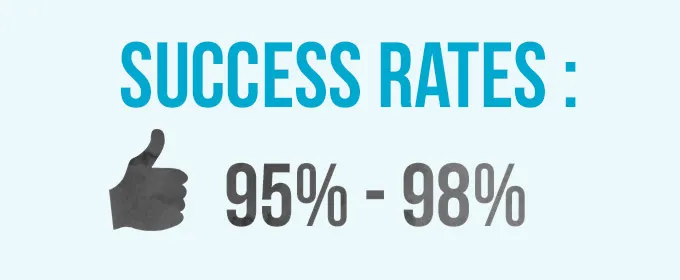Dental implants are the modern best option for replacing your missing teeth. They provide long-lasting, highly successful, and completely natural-looking auxiliary that really becomes part and parcel of your jawbone and aid in maintaining your general health. The reason why dental implants are so effective is because they are made of titanium and it has the unique capability to osseointegrate or fuse with the living bone.
Can I Qualify For A Dental Implant Procedure?
Qualifying for a dental implant procedure is not something which you can determine on your own. You must go through an exhaustive exam so that your local Atascadero dentist can assess how much bone density and volume you have in the area where you are missing your tooth, as a certain amount of bone is required in order to support a dental implant. However, in case the bone is not enough, simple bone regeneration methods which have been effectively used for several years can be employed in improving your tooth-supporting bone so as to make you qualify for a dental implant.
What Is The Success Rate Of A Dental Implant Procedure?
Traditionally, dental implants procedures have recorded high success rate. Clinical studies and documented research show success rates that go above 95%, which is the highest of any tooth replacement alternative. Even in sections of low bone density, the rate of success is still high. Once functional and integrated, the implant restorations if well maintained can be used for a lifetime.

Treatment Alternatives for Dental Implants
Several dental restorations can be supported by dental implants. They include:
• Combinations of removable and fixed bridgework. The implants will support a segment of fixed bridgework, to which a removable sector is attached.
• Multiple tooth replacements. Several missing teeth can be substituted with several implants that will be proving support to the fixed bridgework. For instance, a 3-unit bridge can be used to replace three missing teeth in a row will include three crowns and two implants; or several implants can provide support to a bigger number of false teeth. Normally 4 to 8 implants are required in replacing a full arch (jaw) of teeth (ten or more crowns) when using a fixed bridgework.
• Single tooth replacements. In this type of dental restoration, one implants, and a single crown will replace one tooth.
• Over-dentures. With this type, two or more dental implants will offer denture stabilization (a set of removable dentures). The over-dentures are seen as the standard of care for individuals who have lost their teeth in either one or in both of their jaws.
• Temporary bridgework. In this type of restoration, micro-mini implants will be used in temporarily supporting bridgework while the permanent implants will be healing so that at no single time will the person remain without any teeth.
• Orthodontics (Anchorage for movement of teeth). Temporary implants will act as the stable anchor components for orthodontic devices so as to permit faster and much easier tooth movement.
The Type Of Care That Is Needed After A Dental Implant Procedure
Dental implants do not require a lot of attention when compared to your natural teeth. They never bring any root canal issues or decay. The only concern for these dental implants is gum disease and the excess stress that can be applied to these implants through bruxing or clenching habits.
To avoid gum disease, you should brush and floss your teeth daily. In addition, you should go for regular expert cleanings after every 3 to 4 months so as to keep your gum tissues healthy. In case you have a clenching or grinding habit, you should use a nightguard to protect your dental implants.
How Can My General Health Affect Dental Implants?
Some health habits and conditions can affect the success of your dental implants. For instance, in case you have uncontrolled diabetes, your capability to heal generally will be substantially affected. This will, in turn, have an adverse impact on the osseointegration process. Smoking significantly reduces your blood supply which is essential in healing; therefore surgical healing generally is less ideal for an individual who smokes (nonetheless smoking cannot disqualify you from undergoing a dental implant procedure).
What Can Make Dental Implants To Be Unsuccessful?
Even though it is unusual, a dental implant can fail to connect to properly connect to the bone, or it can loosen from the bone for several reasons. Failing to eliminate plaque and food particles from the gums near the implant on a daily basis can result in a bacterial infection that is commonly referred to as peri-implantitis. This bacterial infection destroys the bone and makes the dental implant loose.
Welcome to CK Farr Dentistry – Your Trusted Atascadero Dental Office

Atascadero Dental Office Hours
We are closed daily from 12:00 PM – 1:00 PM for lunch.
Dental Office in Atascadero
